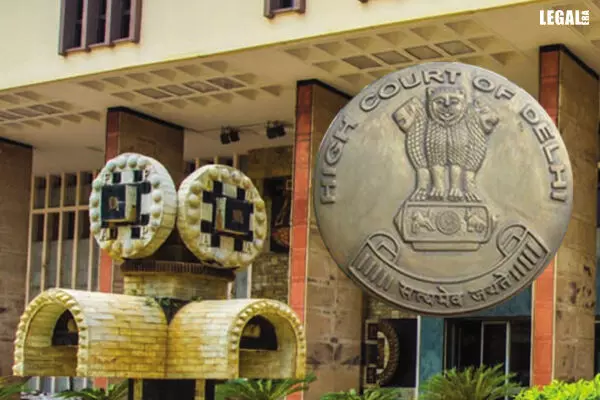- Home
- News
- Articles+
- Aerospace
- Artificial Intelligence
- Agriculture
- Alternate Dispute Resolution
- Arbitration & Mediation
- Banking and Finance
- Bankruptcy
- Book Review
- Bribery & Corruption
- Commercial Litigation
- Competition Law
- Conference Reports
- Consumer Products
- Contract
- Corporate Governance
- Corporate Law
- Covid-19
- Cryptocurrency
- Cybersecurity
- Data Protection
- Defence
- Digital Economy
- E-commerce
- Employment Law
- Energy and Natural Resources
- Entertainment and Sports Law
- Environmental Law
- Environmental, Social, and Governance
- Foreign Direct Investment
- Food and Beverage
- Gaming
- Health Care
- IBC Diaries
- In Focus
- Inclusion & Diversity
- Insurance Law
- Intellectual Property
- International Law
- IP & Tech Era
- Know the Law
- Labour Laws
- Law & Policy and Regulation
- Litigation
- Litigation Funding
- Manufacturing
- Mergers & Acquisitions
- NFTs
- Privacy
- Private Equity
- Project Finance
- Real Estate
- Risk and Compliance
- Student Corner
- Take On Board
- Tax
- Technology Media and Telecom
- Tributes
- Viewpoint
- Zoom In
- Law Firms
- In-House
- Rankings
- E-Magazine
- Legal Era TV
- Events
- Middle East
- Africa
- News
- Articles
- Aerospace
- Artificial Intelligence
- Agriculture
- Alternate Dispute Resolution
- Arbitration & Mediation
- Banking and Finance
- Bankruptcy
- Book Review
- Bribery & Corruption
- Commercial Litigation
- Competition Law
- Conference Reports
- Consumer Products
- Contract
- Corporate Governance
- Corporate Law
- Covid-19
- Cryptocurrency
- Cybersecurity
- Data Protection
- Defence
- Digital Economy
- E-commerce
- Employment Law
- Energy and Natural Resources
- Entertainment and Sports Law
- Environmental Law
- Environmental, Social, and Governance
- Foreign Direct Investment
- Food and Beverage
- Gaming
- Health Care
- IBC Diaries
- In Focus
- Inclusion & Diversity
- Insurance Law
- Intellectual Property
- International Law
- IP & Tech Era
- Know the Law
- Labour Laws
- Law & Policy and Regulation
- Litigation
- Litigation Funding
- Manufacturing
- Mergers & Acquisitions
- NFTs
- Privacy
- Private Equity
- Project Finance
- Real Estate
- Risk and Compliance
- Student Corner
- Take On Board
- Tax
- Technology Media and Telecom
- Tributes
- Viewpoint
- Zoom In
- Law Firms
- In-House
- Rankings
- E-Magazine
- Legal Era TV
- Events
- Middle East
- Africa
Delhi High Court restrains plastic chair manufacturers from using the mark ‘Nilkranti’ in a suit by ‘Nilkamal’

Delhi High Court restrains plastic chair manufacturers from using the mark ‘Nilkranti’ in a suit by ‘Nilkamal’
Still, it cleared that there was no similarity between the two
In a trademark infringement suit, the Delhi High Court has restrained two plastic chair manufacturers from using ‘Nilkranti’ device mark or any other mark confusingly or deceptively like the mark ‘Nilkamal’.
However, the Bench comprising Justice C Hari Shankar rejected the plea of Nilkamal to restrain the manufacturers from using ‘Nilkranti’ as a word mark, either for chairs or for any other item manufactured by them.
The Court held, “There is no similarity between Nilkamal and Nilkranti. In fact, the latter half of the two marks ‘kamal’ and ‘kranti’ individually have their own distinct etymological connotations in the vernacular, with the one meaning a lotus and the other a revolution.”
The Judge stated that Nilkranti could not be regarded as confusingly similar to Nilkamal and the prefix ‘Nil’ was merely the first of the three syllables which constitute the word.
The Court ruled, “It is well-settled that the rival marks are to be considered as whole marks, and not by vivisecting them into their individual components. This principle also finds its statutory avatar in Section 177 of the Trade Marks Act, 1999, which specifically holds that the plaintiffs are entitled to claim exclusivity over a registered mark as a whole and not individual parts unless such parts are registered. The plaintiffs do not have any registration for the prefix ‘Nil’ of the Nilkamal mark.”
Nilkamal Crates and Containers filed the suit against two manufacturers who were using ‘Nilkranti’ mark for making plastic molded chairs, as was being done by the former.
The Court observed that Nilkamal made out a prima facie case for injuncting the defendant manufacturers, pending the disposal of the suit, from using the mark Nilkranti. However, no case for injuncting the defendants from using the mark Nilkranti was made out.
Thus, the Judge explained, “The plaintiffs cannot, therefore, claim a monopoly over the prefix ‘Nil’ to injunct all others from using it as a prefix for the marks in respect of plastic molded chairs or any other item or furniture. The marks, therefore, must be compared as a whole. Thus, there is no phonetic similarity between Nilkamal and Nilkranti.”
Justice Shankar stated that there was no reason why the Court should presume that a consumer of average intelligence and imperfect recollection would either confuse ‘Nilkamal’ with ‘Nilkranti’ or believe that the two were associated.



